As another year of 16 Days of Activism against gender-based violence draws to a close, South Africans reflect that this social scourge deserves our activism every day of the year.
Civil society organisations are at the forefront of preventing and responding to violence against women, assisting survivors, and strengthening the agency of girls and women to assert their rights as equal to men.
This article puts a spotlight on the work of nine feminist organisations that have partnered with the Embassy of France in South Africa, Lesotho and Malawi, under the Civil Society Development Fund (CSDF), to prevent gender-based violence (GBV) and as fostering the economic empowerment of rural women in Lesotho and South Africa.
These 9 organisations, namely Black Womxn Caucus, Ubunye, DOCKDA, She-Hive, Lawyers Against Abuse, Women on Farms Project, POWA, Hope for Rural Women’s Assembly and Nisaa, are committed to assisting women and supporting communities in both rural and urban areas.
DOCKDA
DOCKDA Rural Development Agency has been working for more than 28 years with the belief that people who live in rural communities are the key to long-term development in their communities. DOCKDA establishes relationships with women-led community-based organisations (CBOs) in the Northern Cape in order to identify and support the needs of these respective communities.
DOCKDA collaborates with multiple CBOs to develop and strengthen support groups in rural communities. These groups help prevent substance and alcohol abuse, provide support to those who have survived GBV or are living in vulnerable situations, as well as provide debriefing and counselling sessions for those who have experienced trauma and GBV.
Through the support of the CSDF, DOCKDA has been able to work in isolated communities that are difficult to reach due to high travel costs and poor roads, in the Joe Morolong Local Municipality, Northern Cape. DOCKDA is capacitating the home based care workers that are members of these CBOs. In turn, these community care workers are able to improve the support programmes they avail to their communities.
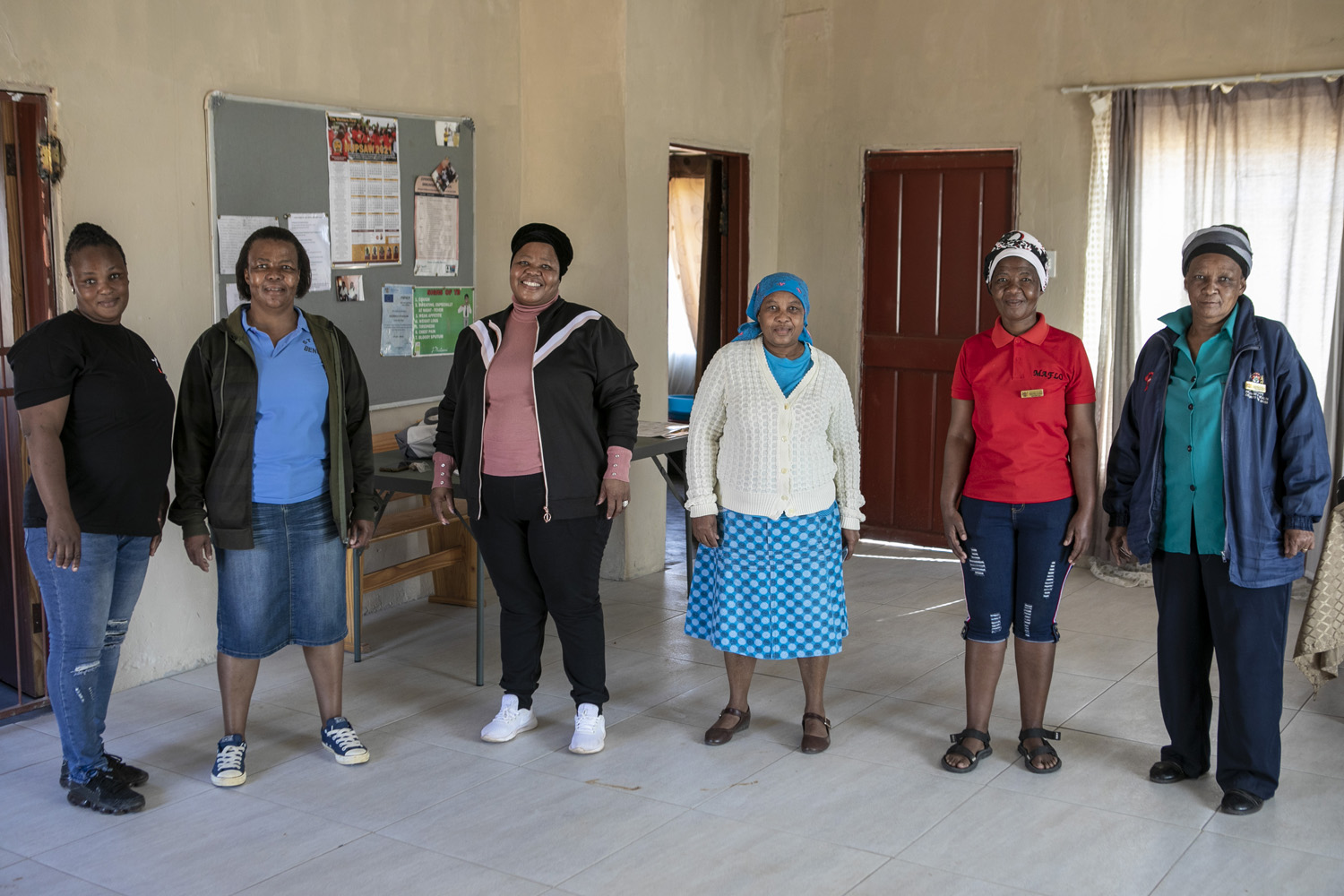
Image courtesy of DOCKDA Rural Development Agency
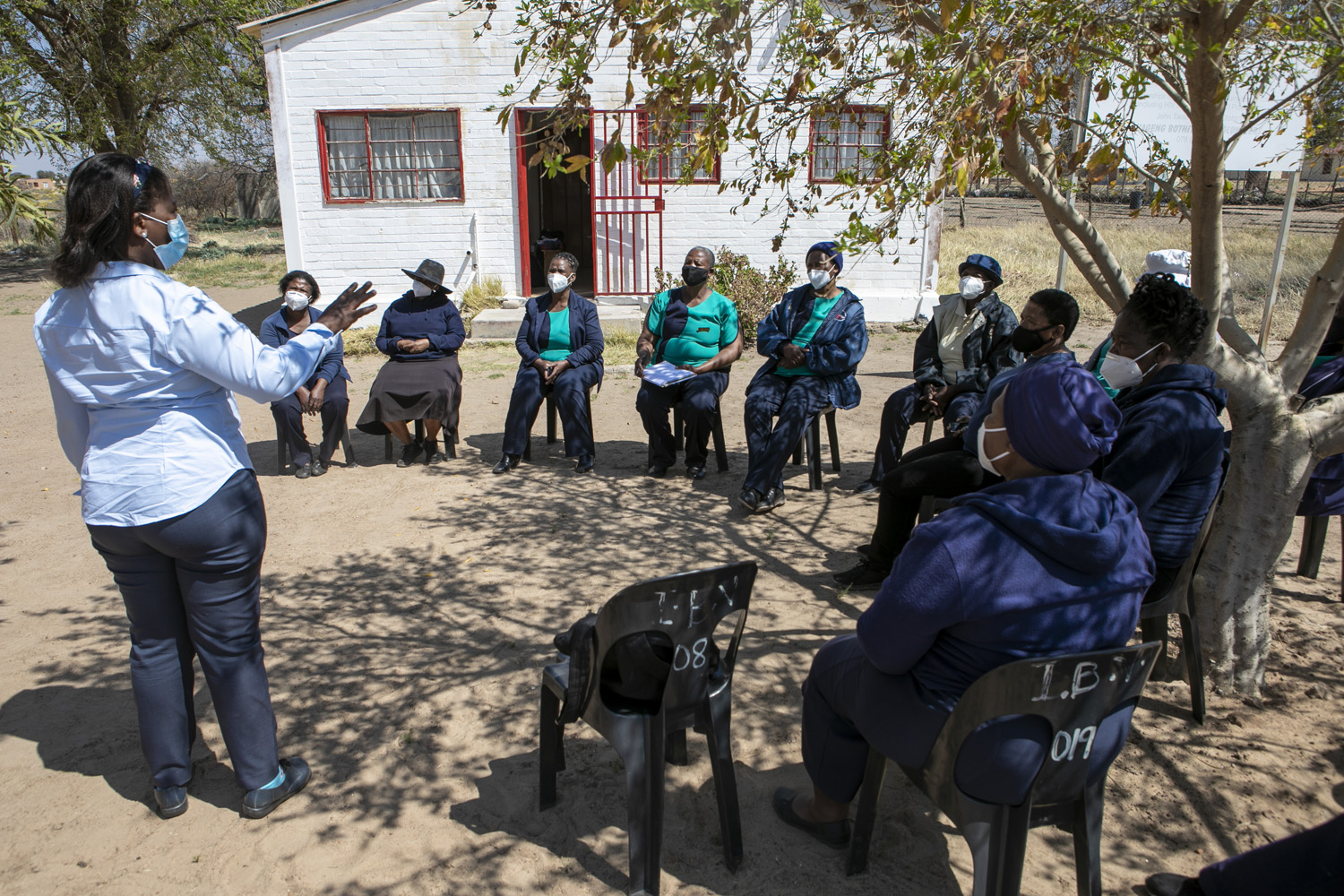
Image courtesy of DOCKDA Rural Development Agency
Ubunye Foundation
Ubunye Foundation has been working in the rural areas of Nqushwa and it’s municipality under the Amathole District in the Eastern since 2002 as a response to community requests for childcare facilities. The organisation has since grown to partner with communities in 4 interconnected programme areas focused on early childhood education, youth, health and wellness as well as livelihoods and financial savings.
Ubunye’s Youth Programme (Ikamva Lolutsha), which has been funded by the CSDF, was established in 2020 after community members identified the huge challenges that young people face in the communities, particularly the interconnected issues of gender-based violence, poverty, and their feeling of having no future. The Ikamva Lolutsha Programme was co-created with young women from the area. It focuses on empowerment, confidence building, life planning and reaching for financial independence from men and the associated risks of GBV. To date, the Ikamva Lolutsha Programme has enabled over 180 young women to dream, something they have not dared to do, and to take concrete steps towards achieving their dreams.
The CSDF helped Ubunye respond to community needs directly and respected the community’s right to lead in their own development. It allowed the programme to follow the course the Ikamva Lolutsha members wanted to follow without being overpowering or focused on their ‘donor’ perspective. This is almost unique in the history of Ubunye’s funding, where donors often demand that programmes are run in certain ways or reach certain targets or fixed donor-defined goals.
Black Womxn Caucus
Through mobilising, educating and advocating for a society free of violence against women and children, Black Womxn Caucus (BWC) aims to create agency through feminism. Established in 2017, the movement was formed in response to the prevalence of femicide in South Africa.
Thanks to funding from the CSDF, the organisation has implemented a number of initiatives. One of the standout interventions is the #OperationLetsaPhala campaign, which highlights how being undocumented makes women and children vulnerable to GBV, as well as the relationship between gender-based violence, substance abuse, and sexual risk; and educates people on what assistance is available. #OperationLetsaPhala coordinators were also trained to conduct visits to informal settlements and engage with community leaders, aiding them in understanding how to deal with the issues their communities face.
BWC also facilitates a #ThinkTank which focuses on institutions of higher learning and other youth spaces. The purpose of the #ThinkTank is to have a young women-led interdisciplinary research unit within BWC with the objective of providing advice on a diverse range of policy issues and developing material through the use of specialized knowledge and the activation of networks.
Lawyers Against Abuse
Lawyers Against Abuse (LvA) implemented two interventions with funding from the CSDF. The first one benefited three Early Childhood Development (ECD) centres in Orange Farms and Diepsloot, Johannesburg, with the objective of increasing prosocial behaviour among ECD learners. At each centre, LvA facilitated a series of eight sessions with learners that used a combination of imaginative role play and interactions with a persona doll to engage various characteristics of prosocial behaviour. In addition, LvA facilitated educator workshops at each school to capacitate educators around identifying symptoms related to trauma in children and understanding the negative impacts of corporal punishment on the learners themselves as well as the learner-educator relationship.
Overall, 210 learners and 50 educators were reached through the intervention. The second intervention consisted of facilitating six community workshops in Diepsloot for over 150 community members with the objective of shifting harmful gender attitudes, roles and social norms that perpetuate gender-based violence. Each workshop explored definitions and examples of GBV, its effects and contributing factors, the cycle of violence, gender norms and stereotypes and power dynamics. At each workshop, participants were highly engaged with the material covered and had robust discussions with both the facilitators and each other on key topics.
In addition, the partnership with the French Embassy through the CSDF also helped LvA to grow as an organisation. LvA staff were able to attend training courses, workshops, webinars, etc, all relevant to their respective roles within the organisation, which, in turn, enabled them to further develop professionally, thus increasing the effectiveness of their work and overall impact of the organisation.
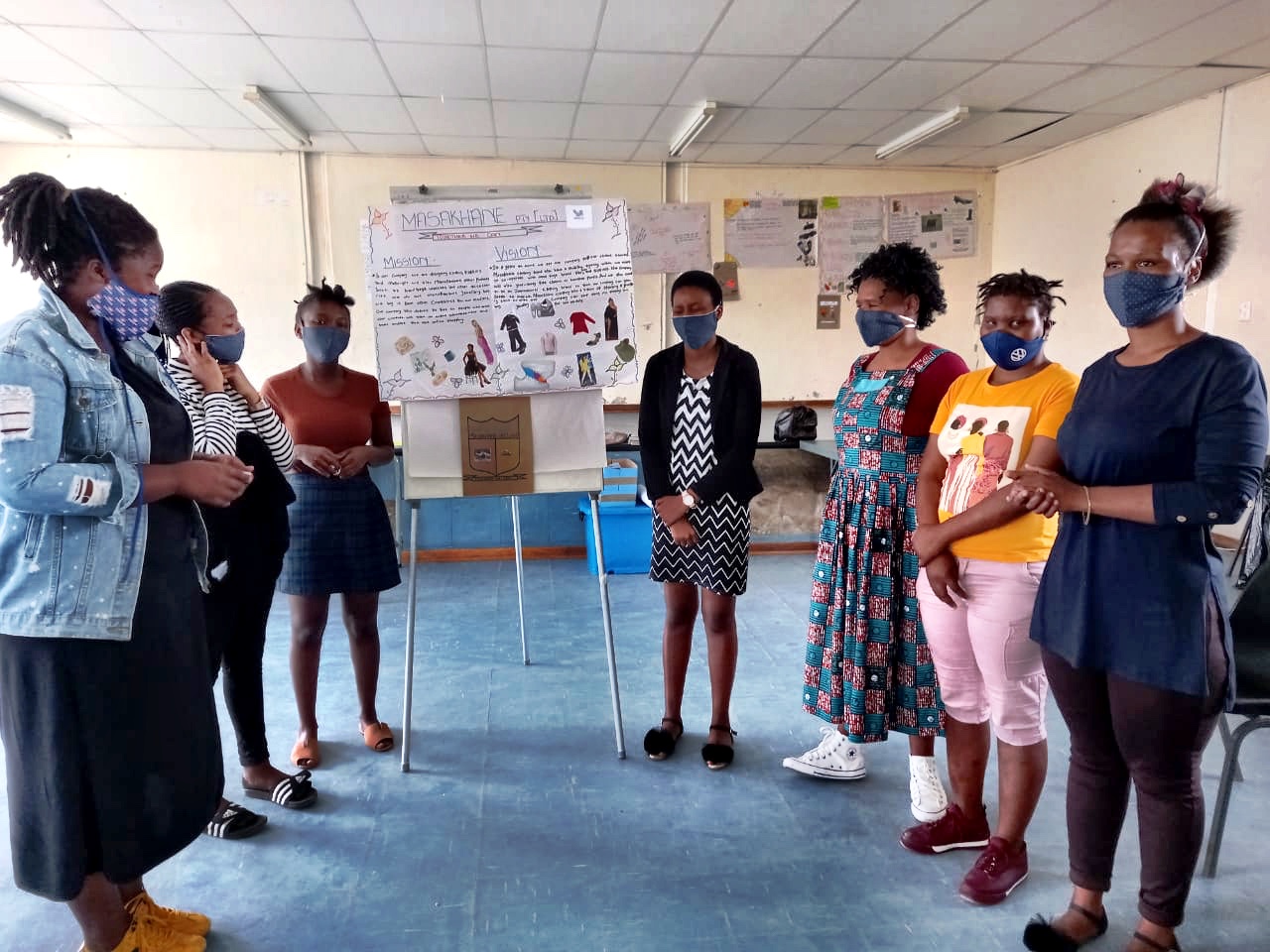
Image courtesy of Ubunye Foundation
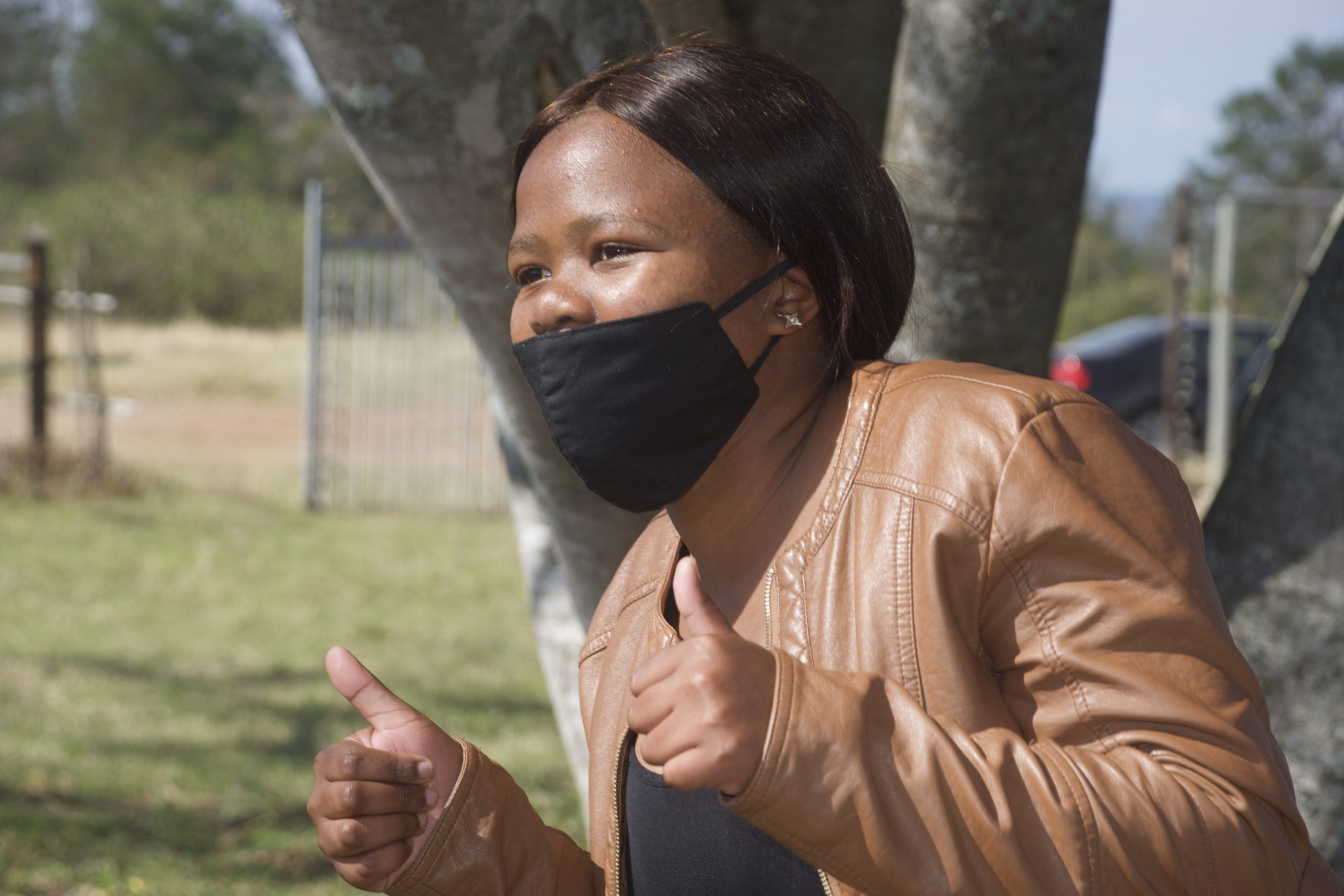
Image courtesy of Ubunye Foundation
Hope for Rural Women’s Assembly
Hope for Rural Women’s Assembly (HRWA) has been rolling out a project to enhance the resilience of communities in the Mafeteng district of Lesotho as well as the ecosystems around them. HRWA has been able to assist in protecting and improving the rural livelihoods, equity and social well-being of rural communities, in particular women.
The project was about creating long lasting opportunities for rural communities through practicing sustainable/viable agriculture and resisting changing climate conditions.
With the support of the CSDF, HRWA encouraged its members to use local available resources such as collecting stones and building water tanks instead of hiring contractors to do the job, using compost manure in the tunnels instead of chemical fertilisers (the prices of which have increased drastically) as well as constructing tunnels for agriculture. HRWA introduced participants to sustainable farming techniques such as no or minimal tillage, soil regeneration, and organic fertilisers. By doing so, the organisation helped communities improve efficiency in the use of resources and become more independent. Importantly, the project brought communities together as women, men, and young people worked together on collective initiatives.
This partnership with the Embassy of France has enabled HRWA to gain more recognition from different stakeholders including the government. The membership base is growing, and the organisation is getting stronger.
She-Hive
Since receiving funding from the CSDF, She-Hive has realised the importance of having a network of women-led organisations that have a similar goal/mandate, and therefore established a movement building initiative called “Moliko” (translated: “surrounded”) that will co-design activities/programs/initiatives in the pursuit of combatting violence against women and girls.
Through community gatherings (safe spaces), radio programs, etc, She-Hive reached 550 adolescent girls and young women (AGYW), 15 stories were captured, and 20 AGYW participated in an engagement with two female parliamentarians on GBV issues. Some of these AGYW also made input to the Counter Domestic Violence Bill.
The project allowed She-Hive to reach 150 village chiefs through these activities and to build stronger relationships with them, to the extent that they now get clientele referred by them. Some of the AGYW have been invited to the village chiefs’ monthly seating/meetings where they were given platforms to raise awareness about young people’s issues at community level. One of the empowered AGYW was also invited to several national and international platforms as a panellist, and nominated into the Youth Advisory board for “Maximizing Options to Advance Informed Choice for HIV Prevention (MOSAIC)” project by JPHIEGO in Lesotho.
Through the project, She-Hive established taskforce teams that have become representatives of the organisation in their communities. They have noticed a higher number of cases referred by them or through their guidance. The organisation’s footprint was also broadened to two more districts of Lesotho, bringing its operations to three districts in total.
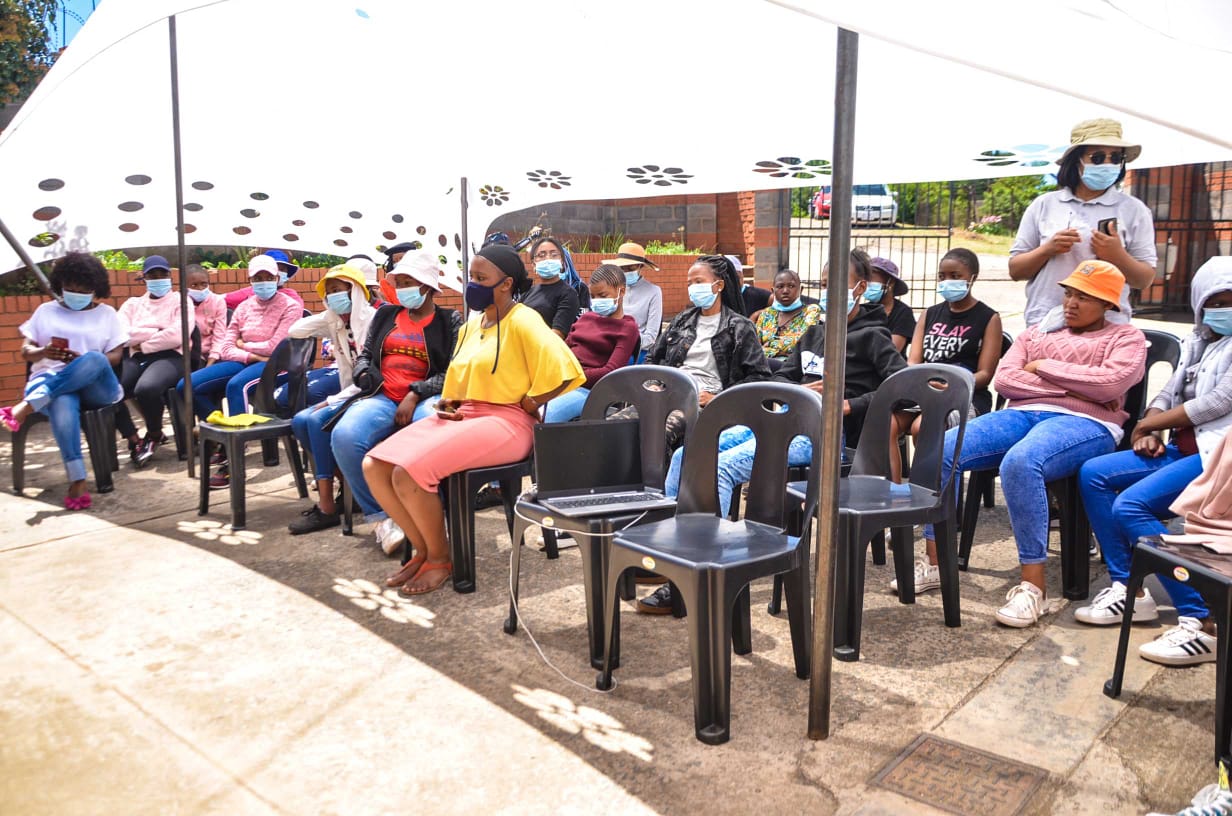
Image courtesy of She-Hive
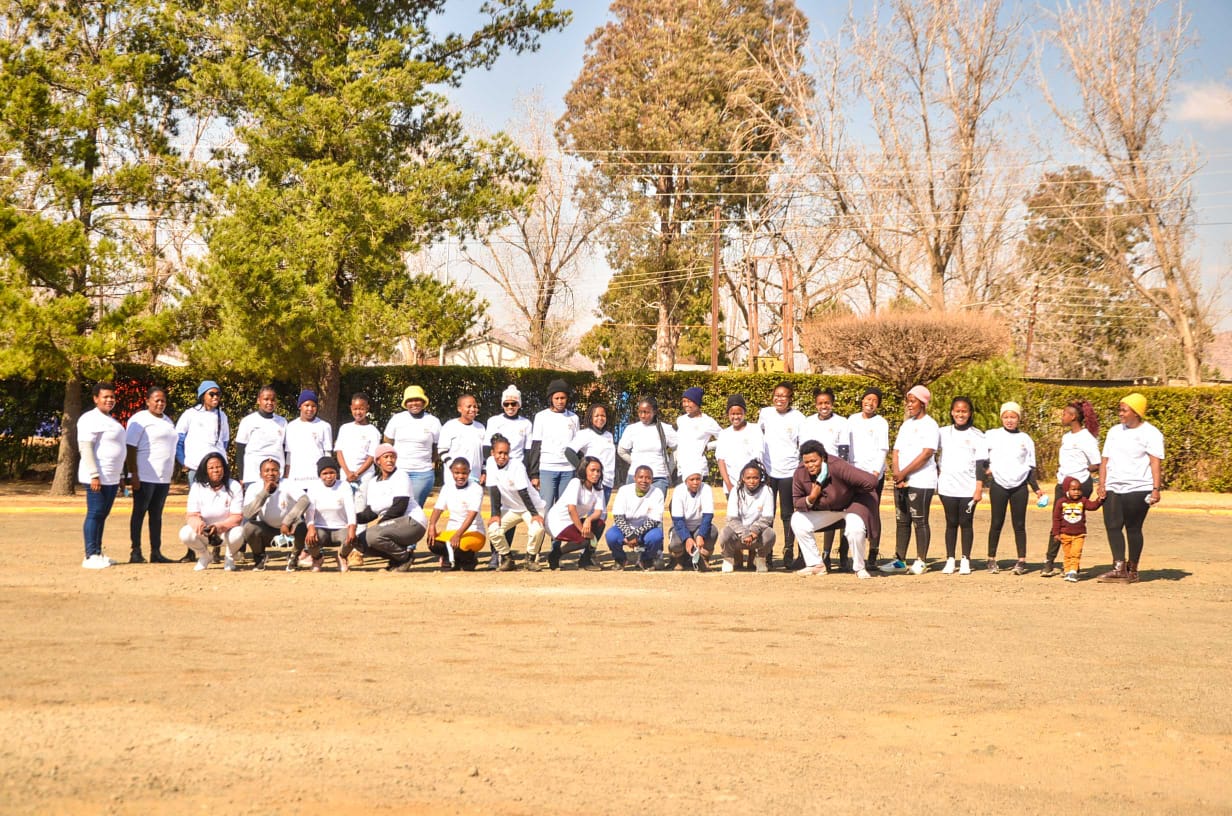
Image courtesy of She-Hive
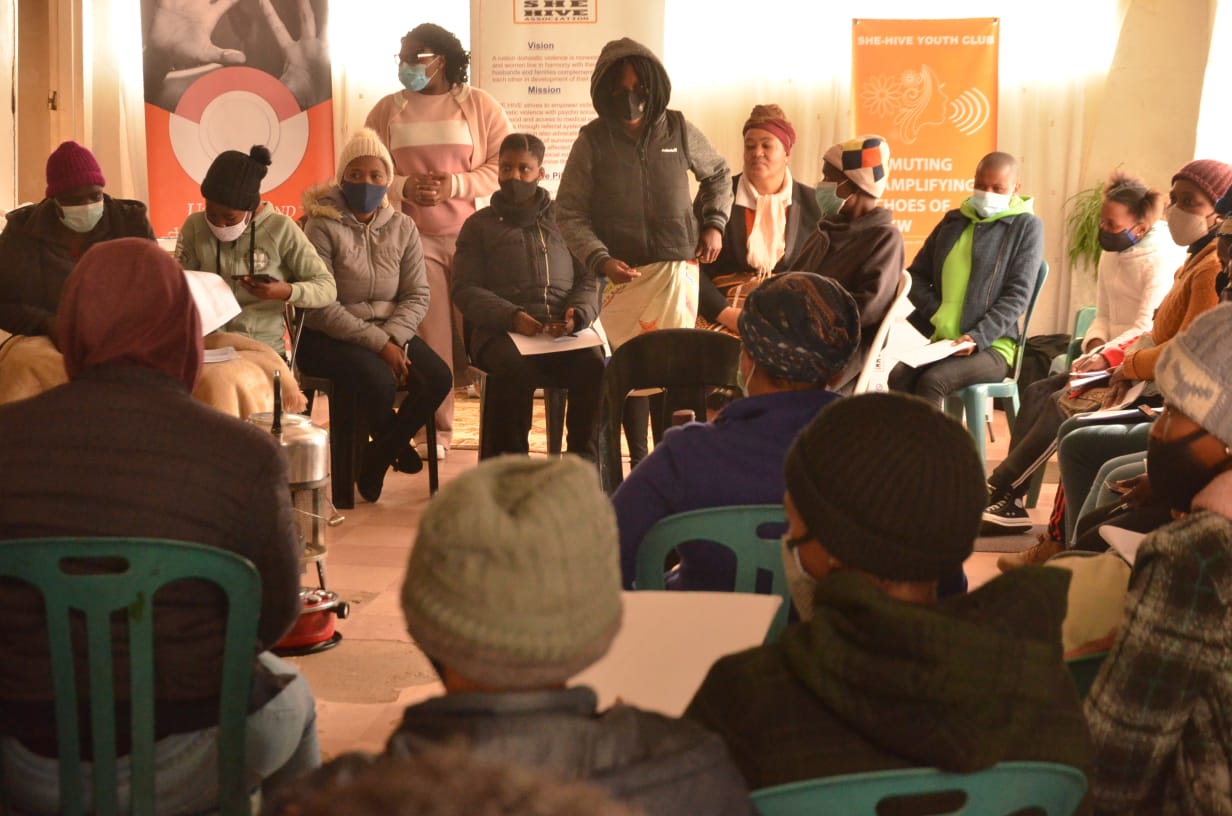
Image courtesy of She-Hive
Nisaa
Nisaa has been working on a project called ‘Rising Up, Moving On’. With the support of the CSDF, the project has reached 3 groups of 20 men, 3 groups of 20 women and 3 groups of stakeholders in the communities of Orange Farm, Soweto and Lenasia, through various educational workshops on gender and gender-based violence and related legislation. The groups were brought together to share a common understanding of gender-based violence and to determine how best they could act on the matter within their communities. These activities gave many women the opportunity to hold stakeholders such as the South African Police Service (SAPS) accountable for their inaction.
In addition, Nisaa rolled out additional educational workshops with the same groups of people, on issues around the interface between gender-based violence and HIV and AIDS. Further dialogues were also held to try and put together an implementation plan to action key areas that were identified for intervention.
Besides the work in the communities, Nisaa was able to rebuild its website following a hacking incident. This has helped immensely with sharing of information on Nisaa’s work and raise funding.
Women of Farms Project
Women on Farms has historically worked with adult farmwomen on the issue of GBV. The CSDF has enabled the organisation to extend its GBV work to new farms and areas in both the Western Cape and Northern Cape.
The following activities have taken place:
- Rights-based capacity-building workshops with separate groups of boys, girls, men and women, on issues including GBV; gender; feminism; masculinities; power and wellbeing in intimate relationships, using the Paulo Freirean “Training for Transformation” (TfT) approach.
- After capacitating farmwomen with knowledge, 40 agro-ecological food gardens were established. These provide livelihood support to women seasonal farm workers who are unemployed from March to October, during the off-season. Agro-ecological food gardens are aimed at increasing farmwomen’s independence, decision-making and status in their households.
- Case work related to GBV, including assisting women to get Protection Orders against abusive partners.
- Partnerships with other civil society organisations were established or strengthened – e.g. Shelter Movement; Sonke Gender Justice; Probono.org; FASfacts; Triangle Project; Pride Shelter Trust.
- The organisation and farmwomen activists engaged with South African Police Services (SAPS) and the Department of Justice & Constitutional Development regarding the issuing and enforcement of Protection Orders, as well as with the Department of Social Development.
- A mass-based event for National Women’s Day with 250 farmwomen, focusing on how the introduction of a Basic Income Grant will contribute to a reduction of GBV because it will increase farmwomen’s financial power and autonomy.
Such initiatives enable Women on Farms to increase its footprint in farm worker communities, thereby reaching more farmwomen with knowledge of their rights and how to assert and realise these rights; but also to innovate and extend the focus of their work by, for example, working with children and men on issues of gender and GBV.
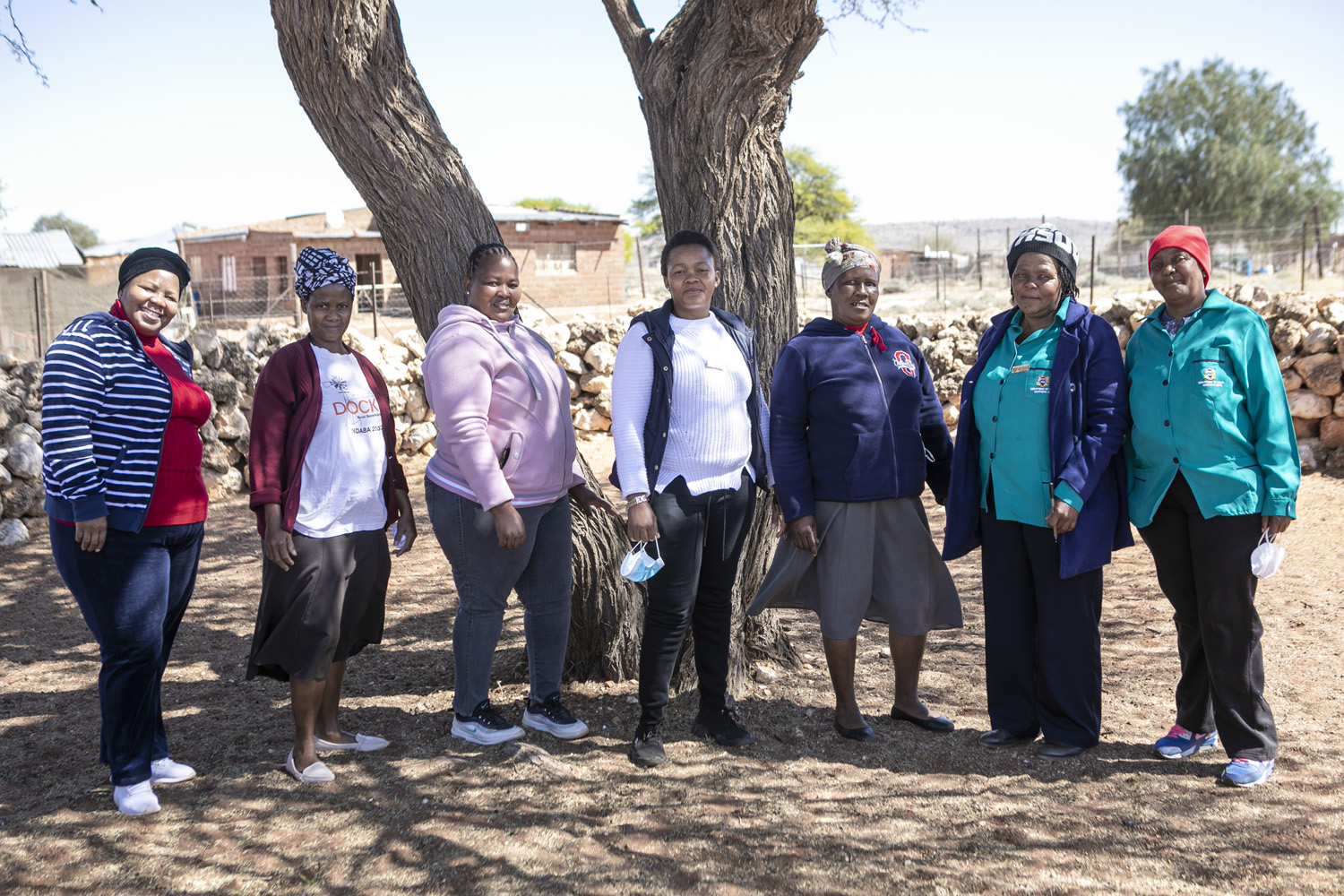
Image courtesy of DOCKDA Rural Development Agency
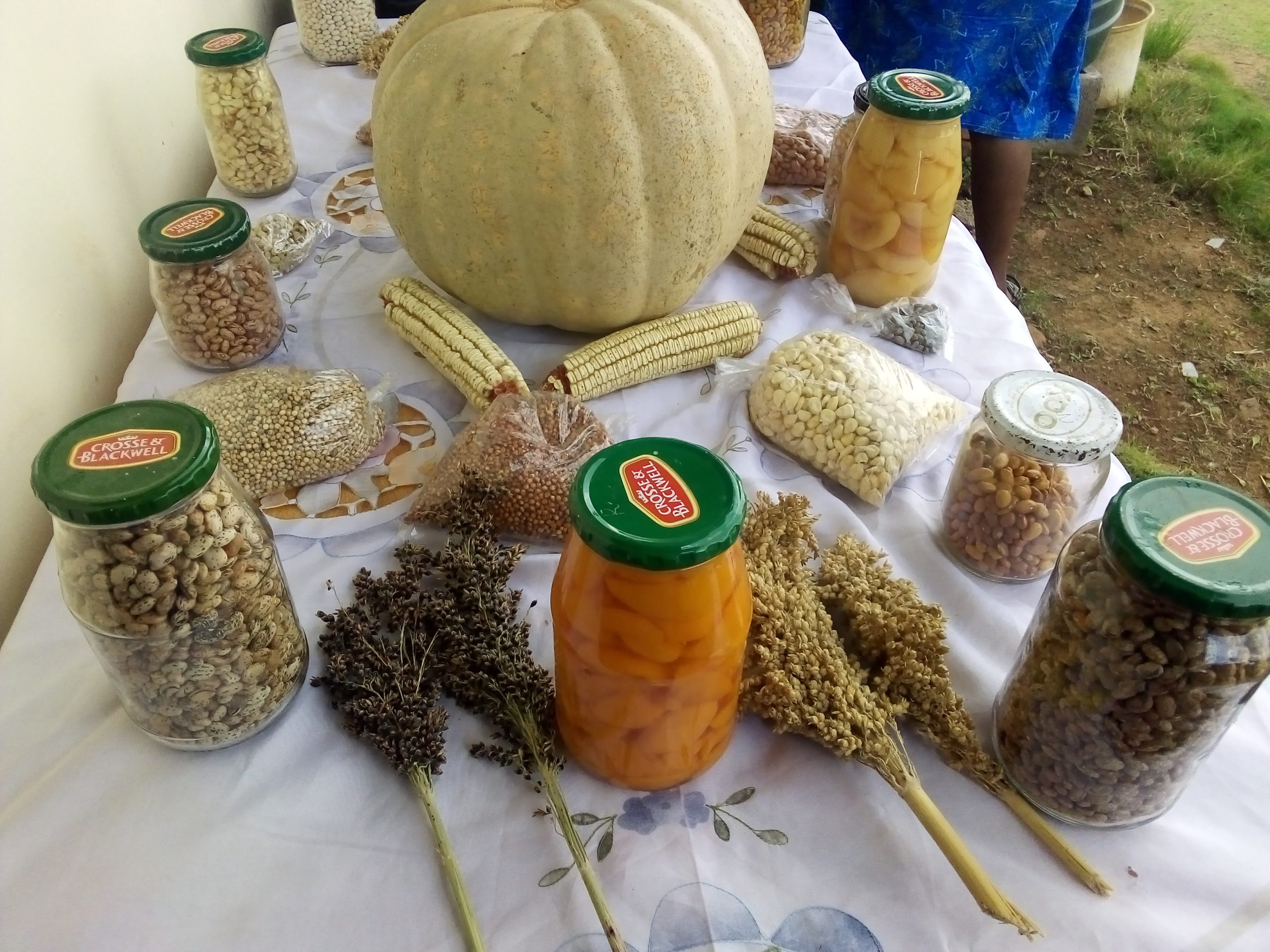
Image courtesy of Hope for Rural Women’s Assembly
POWA
Through the partnership with the Embassy of France, POWA has had an opportunity to spread its wings and work with women in the Klipgat community, Winterveld, Northwest province. An organisation specialised in offering shelter services to survivors of GBV with offices situated in the Gauteng, (Johannesburg, Vaal and Ekurhuleni), the organisation went out of its comfort zone geographically but also in terms of the kind of interventions it rolled out. Indeed the project consisted in establishing an organic vegetable garden with survivors, thus still linking with POWA’s core GBV work.
Working with 28 women, the organisation revived a vegetable garden that previously ceased to exist due to lack of funding. Week after week, they have been working together to establish and maintain the communal vegetable garden, honing their permaculture farming skills as they go. These skills are meant to assist them to become more food secure, self-sufficient and self-reliant as well as ultimately, to break the intricate cycle of violence and abuse. Some of the participants already had an interest, and some experience cultivating vegetable at home. The project helped remotivate them and enhance their farming skills, to better manage their home food garden and possibly generate an income out of these skills. Some of the produce from the garden is given to the old age home situated near the garden, and the orphans and vulnerable children project is also benefiting from the garden. The participants are able to take some vegetables home to feed their families and have opened a bank account to save money from selling the produce.
Women’s economic agency – their capacity to act independently and to make their own choices freely – and access to productive resources are key to achieving gender equality, and to transforming the conditions and mindsets that feed women’s vulnerability to violence. They can also leverage poverty reduction, improved food security and sustainable development in general.
Besides the technical farming and agri-business training, the project included awareness sessions and support on issues of GBV and practical and legal options available to address their plight.
The project participants and POWA staff are unanimous: the communal vegetable garden has proved to be a safe and therapeutic space for GBV survivors to deal with their experience of abuse. Without even realising it, they have been growing self-confidence and self-respect, and pride of what they are capable of achieving, individually and as a group. It has also provided an opportunity to learn and support each other.
As a non-profit organisation, POWA depends on funding to continue with its work. Initiatives like this play an important role for them to be able to reach communities. Through the project, they have reachec 28 women and learnt permaculture skills that they plan to transfer the skill to their shelters for abuse women.
***
The Civil Society Development Fund is an initiative between the French Embassy and African social justice organisations that aims to enhance democratic governance, social cohesion and human rights in Africa. Recognising that fostering women’s agency plays an important part in preventing gender-based violence, the CSDF has been focusing on supporting feminist civil society organisations in South Africa and Lesotho.
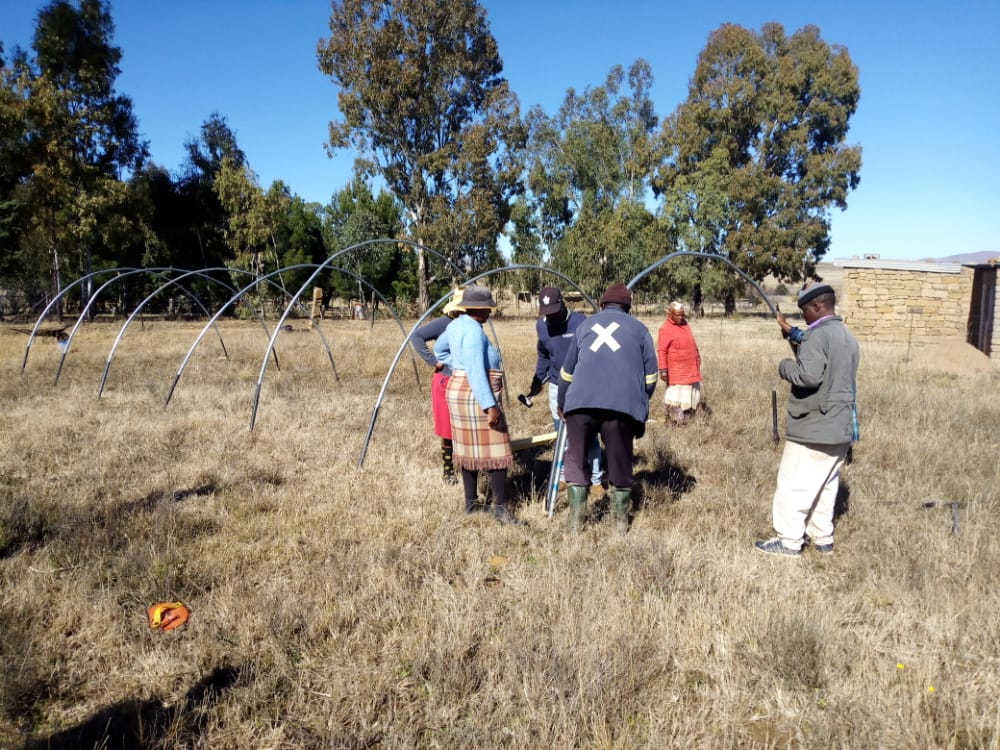
Image courtesy of Hope for Rural Women’s Assembly



















































